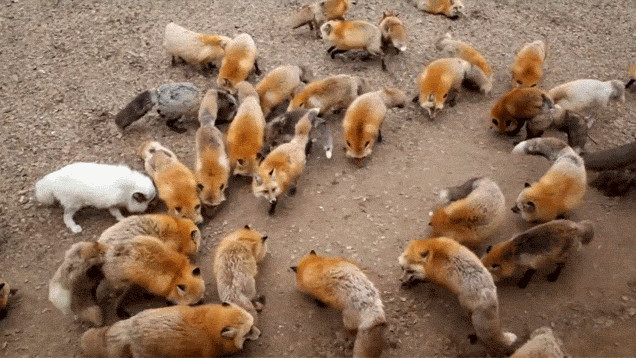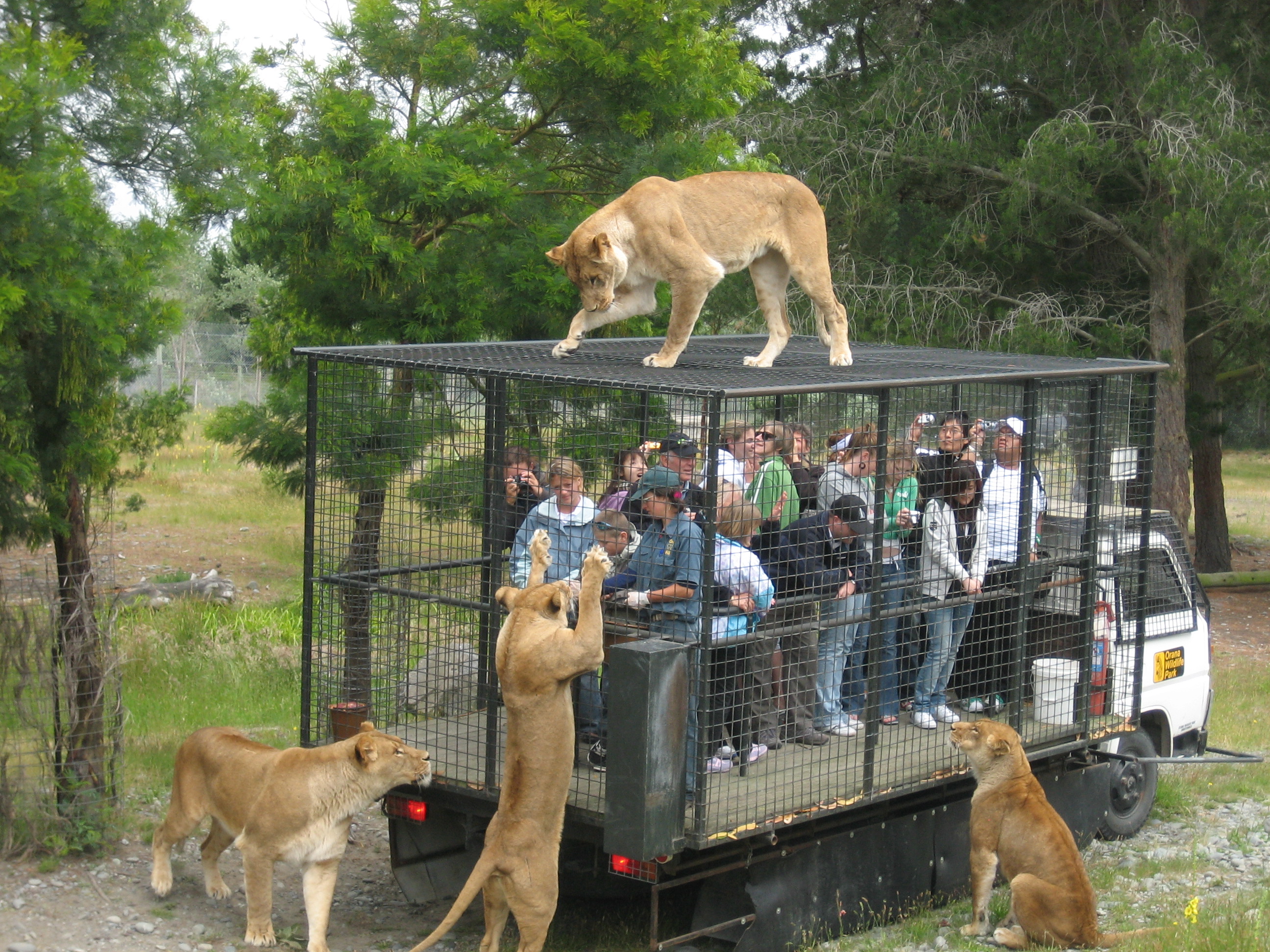
Zao Fox Village in Japan attracts tourists, as it is an island inhabited by foxes in which tourists can get close to and feed.
Feeding wildlife while on vacation is a growing trend, as it allows humans to closely interact with animals and connect with nature without being harmed. It is also a clever way to earn profit without requiring much resources or unnecessary fees to pay. However, there are problems associated with wildlife tourism such as, inadequate nutrition, dependency on unnecessary food sources, habituation to people, and susceptibility to diseases. Tourism feeding typically occurs in wildlife parks, as many people visit these parks to experience nature and to see animals that are not normally seen on a regular basis.
——–
Feeding Tigers and Lions: An Example of Wildlife Feeding in the Tourism Industry

Feeding lions through a cage. An experience worth having?
Orana Wildlife Park, in Christchurch, New Zealand allows tourists to experience feeding lions by hand for just £15. Tourists are cramped into a cage on top of a truck, which shuttles the tourists around the park. As the truck passes, a pact of lions will pounce at the cage attempting to get food from the tourists. This type of tourism can also be experienced at a theme park just outside of Chongqing, China, which was recently launched in early January 2016. Like the wildlife park in New Zealand, tourists are given the opportunity to feed wild tigers and lions some fresh meat through the holes of the mesh cage. What is even more concerning is the tourists are given an option to feed the wild cats live chicken or butchered meat.
A statement from Chris Draper, a programs manager at Born Free Foundations, on the existence of the tiger feeding attraction states:
“This set-up might improve the view of the cats for the visitors, but the benefits to the lions are unclear. Does this experience turn visitors into passionate conservationists, or is it just a cheap thrill?”
The video below shows you what it’s like to be in the tour at Orana Wildlife Park:
——–
Thus, the action of wildlife feeding while on vacation is a controversial issue. Some national wildlife parks may provide educational opportunities for tourists, while other parks are solely aimed to entertain their visitors. Justification towards wildlife feeding depends on one’s view of the world. Some advocates would argue that wildlife feeding is unnecessary and that nature should be left uninfluenced by humans, while others believe that wildlife feeding allows humans to build a close relationship with nature and animals.
